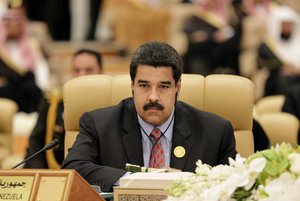- published: 29 May 2009
- views: 338258
-
remove the playlistPizzicato
- remove the playlistPizzicato
- published: 08 Jan 2012
- views: 280396
- published: 23 Oct 2012
- views: 50977
- published: 24 May 2015
- views: 74489
- published: 26 Oct 2012
- views: 100186
- published: 29 Jun 2011
- views: 211217
- published: 28 Jun 2011
- views: 228109
- published: 12 Jul 2014
- views: 9400

Pizzicato (![]() /ˌpɪtsɪˈkɑːtoʊ/; Italian: pizzicato, roughly translated as plucked) is a playing technique that involves plucking the strings of a string instrument. The exact technique varies somewhat depending on the type of stringed instrument.
/ˌpɪtsɪˈkɑːtoʊ/; Italian: pizzicato, roughly translated as plucked) is a playing technique that involves plucking the strings of a string instrument. The exact technique varies somewhat depending on the type of stringed instrument.
When a string is struck or plucked, as with pizzicato, sound waves are generated that do not belong to a harmonic series as when a string is bowed. This complex timbre is called inharmonicity. The inharmonicity of a string depends on its physical characteristics, such as tension, stiffness, and length. The inharmonicity disappears when strings are bowed because the bow's stick-slip action is periodic, so it drives all of the resonances of the string at exactly harmonic ratios, even if it has to drive them slightly off their natural frequency.
The first known use of pizzicato in classical music is in Claudio Monteverdi's Il combattimento di Tancredi e Clorinda (around 1638), in which the players are instructed to use two fingers of their right hand to pluck the strings. Later, in 1756, Leopold Mozart in his Versuch einer gründlichen Violinschule instructs the player to use the index finger of the right hand. This has remained the most usual way to execute a pizzicato, though sometimes the middle finger is used. The bow is held in the hand at the same time unless there is enough time to put it down and pick it up again between bowed passages.
This article is licensed under the Creative Commons Attribution-ShareAlike 3.0 Unported License, which means that you can copy and modify it as long as the entire work (including additions) remains under this license.

Johann Strauss II (October 25, 1825 – June 3, 1899), also known as Johann Baptist Strauss or Johann Strauss, Jr., the Younger, or the Son (German: Sohn), was an Austrian composer of light music, particularly dance music and operettas. He composed over 500 waltzes, polkas, quadrilles, and other types of dance music, as well as several operettas and a ballet. In his lifetime, he was known as "The Waltz King", and was largely then responsible for the popularity of the waltz in Vienna during the 19th century.
Strauss was born in St. Ulrich (now a part of Neubau), the son of Johann Strauss I, another composer of dance music. His father did not wish him to become a composer, but rather a banker; however, the son defied his father's wishes, and went on to study music with the composer Joseph Drechsler and the violin with Anton Kollmann, the ballet répétiteur of the Vienna Court Opera. Strauss had two younger brothers, Josef and Eduard Strauss, who became composers of light music as well, although they were never as well known as their elder brother.
This article is licensed under the Creative Commons Attribution-ShareAlike 3.0 Unported License, which means that you can copy and modify it as long as the entire work (including additions) remains under this license.
- Loading...

-
 1:52
1:52Pizzicato - Léo Delibes (1836 - 1891)
Pizzicato - Léo Delibes (1836 - 1891)Pizzicato - Léo Delibes (1836 - 1891)
Situado en el acto III cuarta parte de la escena musical del ballet "Sylvia" y en el quinto lugar de la Suite, el "Divertissement: Pizzicati" es uno de los mayores éxitos de Delibes. Gran amante de la danza, Tchaikovski admiró este ballet. Sylvia, originalmente Sylvia ou La Nymphe de Diane (del francés: Sylvia o la ninfa de Diana) es un ballet a gran escala en dos o tres actos, con coreografía de Louis Mérante y música de Léo Delibes, estrenado en 1876. -
 3:31
3:31Johann and Joseph Strauss - Pizzicato-Polka (The New Years Celebration From Vienna, 2012)
Johann and Joseph Strauss - Pizzicato-Polka (The New Years Celebration From Vienna, 2012)Johann and Joseph Strauss - Pizzicato-Polka (The New Years Celebration From Vienna, 2012)
Johann and Joseph Strauss - Pizzicato-Polka (The New Years Celebration, 2012, Mariss Jansons, Vienna Philarmonic Orchestra) -
 5:24
5:24Sweet Soul Revue - Pizzicato Five
Sweet Soul Revue - Pizzicato FiveSweet Soul Revue - Pizzicato Five
スウィート・ソウル・レビュー ピチカート・ファイヴ -
 5:21
5:21Pizzicato Five - Sweet Soul Revue Lyrics
Pizzicato Five - Sweet Soul Revue Lyrics -
 5:09
5:09HOW TO: Do Pizzicato on the Violin (Pizz/Pluck)
HOW TO: Do Pizzicato on the Violin (Pizz/Pluck)HOW TO: Do Pizzicato on the Violin (Pizz/Pluck)
***OPEN ME FOR LINKS/INFO*** - SUBSCRIBE HERE: http://goo.gl/GNo4S3 - Subscribe to my performance channel: http://goo.gl/t58h6y - My online music shop: https://www.amsmusicshop.com/ BELOW are violins on Amazon.com I recommend. Mendini MV Range - Really good cheap starter violins:- Mendini MV 200: http://goo.gl/Uk08SA Mendini MV 300: http://goo.gl/ERfYhF Mendini MV 400: http://goo.gl/UhSn7f Mendini MV 500: http://goo.gl/q6ZE3N Cecilio CVN range - for beginners:- Cecilio CVN 100: http://goo.gl/ZfH0Xv Cecilio CVN 200: http://goo.gl/uDc4ZX Cecilio CVN 300: http://goo.gl/viikfN For the Intermediate player:- Cecilio CVN 400: http://goo.gl/MzM7Kh Cecilio CVN 500: http://goo.gl/K0f2tx For the advanced player:- Cecilio CVN 600: http://goo.gl/gpt71v Cecilio CVN 700: http://goo.gl/c9OXpU Cecilio CVN 800 - This one is excellent top of the line, but i cant find a link. Stentor Violin: Stentor II (1500): http://goo.gl/FCa2b MY VIOLIN REVIEWs are all here: http://goo.gl/EOqHyN Amazon.co.uk Links to violins: Stentor II: http://goo.gl/U4LCc BLOG SITE: http://goo.gl/B9MU8 TWITTER: http://twitter.com/#!/AlisonViolinist FACEBOOK: http://goo.gl/34MTS TEACHING WEBSITE: http://www.amsmusictuition.co.uk/index THE LIVE LASER VIOLINIST: http://www.livelaserviolinist.co.uk/ For collaborations and business inquiries, please contact via Channel Pages: http://ChannelPages.com/theonlinepianotutor -
 1:54
1:54Vaganova Ballet Academy - Pizzicato
Vaganova Ballet Academy - PizzicatoVaganova Ballet Academy - Pizzicato
https://www.facebook.com/Balletoman https://twitter.com/Gugaf64 https://plus.google.com/+Balletomancom -
 12:54
12:54Técnicas - Como usar Pizzicato no contrabaixo
Técnicas - Como usar Pizzicato no contrabaixoTécnicas - Como usar Pizzicato no contrabaixo
Aula 1 | Técnicas - Pizzicato: confira a história da técnica, sua definição, exercícios e dicas para aprimorar os grooves. Compre na PlayTech Instrumentos http://www.playtech.com.br Apoio Cordas Solez http://solez.com.br PlayTech Instrumentos http://playtech.com.br Siga o Cifra Club! http://twitter.com/cifraclub http://facebook.com/cifraclub http://www.cifraclub.com.br Instrutor Filipe Marks Baixe o app Cifra Club Social e fique por dentro de tudo que rola aqui! Android : http://bit.ly/AndroidCifra iOS : http://bit.ly/iOSCifra -
 2:48
2:48Johann Strauss II - Pizzicato Polka
Johann Strauss II - Pizzicato PolkaJohann Strauss II - Pizzicato Polka
The second of the Strauss brothers, Josef (1827-70), had been the first to tread the path of matrimony. Though very happily married since 1857, Josef constantly strove to become financially independent so he could break free from the oppressive confines of the Strauss family apartments in the massive 'Hirschenhaus' in Leopoldstadt and establish a home of his own with his wife and daughter. This possibility appeared to him to advance a step closer when, in 1868, brother Johann reached agreement with the management of the St Petersburg Tsarskoye-Selo Railway Company for Josef and himself to share the conducting of concerts at Pavlovsk during the summer months of 1869. The two Strauss brothers were accompanied on their 1869 venture to Russia by Johann's wife, Jetty (1818-78), whose letters home show that the underlying disharmony which had long existed between 'Jean' (Johann) and 'Pepi' (Josef) had largely given way to a spirit of mutual co-operation. As the two musical directors were now able to divide the workload of rehearsing and conducting the orchestra, both had sufficient time to compose. On 13 June 1869 (= 1 June, Russian calendar), Jetty wrote from Pavlovsk to Josef¡¦s wife Caroline (1831-1900) in Vienna: "Pepi & Jean are now writing a polka together - that again will be something new". Almost twenty-three years later, on 1 April 1892, Johann detailed in a letter to his publisher Fritz Simrock the events which had culminated in this fraternal collaboration: "I advised my brother Josef - so that he could secure the St Petersburg engagement (I have been there 10 times and earned a lot of money) [-] to compose something which would catch on in St Petersburg, and suggested he should prepare a pizzicato polka. He did not want to do it - he was always indecisive - finally I proposed to him that the polka should be created by the two of us. He agreed, and just look - the polka caused a furore in the true sense of the word". Johann Strauss was not exaggerating. The records kept by the diarist F.A. Zimmermann, a viola-player in the 47-strong orchestra at Pavlovsk, show clearly that the work was played no less than nine times on the evening it was first introduced to the Russian public - 24 June 1869 (= 12 June). One can only guess at the scenes which must have ensued as the public demonstrated its wild enthusiasm for this novelty item which, according to Johann, was the very first of its kind. (Léo Delibes's famous Pizzicato-Polka for his ballet Sylvia, ou La Nymphe de Diane was not heard until 1876.) In view of the work's success, it is strange that Johann and Josef omitted the Pizzicato-Polka from their next eleven concerts and only reintroduced it at their benefit performance on 6 July 1869 (= 24 June), when the piece had to be played a total of seven times. At subsequent performances during the remainder of the Pavlovsk season, the Pizzicato-Polka continued to exert its extraordinary effect upon the public. Outside the lands of the Tsar, the Pizzicato-Polka began its conquest of the world when Josef Strauss conducted its Viennese première on 14 November 1869 during the first of his promenade concerts that season with the Strauss Orchestra at the Sofienbad-Saal. In addition to the Pizzicato-Polka - which was given by a quartet of players - Josef also introduced the first Viennese performances of three other works written by him for that year's Pavlovsk concerts: Ohne Sorgen! Polka schnell op. 271, Frohes Leben, Walzer op. 272 and En passant, Polka française op. 273. -
 2:07
2:07Pizzicato (Sarasate: Caprice Basque)
Pizzicato (Sarasate: Caprice Basque) -
 2:30
2:30Léo Delibes - Sylvia - Pizzicato
Léo Delibes - Sylvia - PizzicatoLéo Delibes - Sylvia - Pizzicato
Sylvia, originally Sylvia, ou La nymphe de Diane, is a full-length ballet in three acts, first choreographed by Louis Mérante to music by Léo Delibes in 1876. Photo: Léo Delibes (1836-1891) -
 3:09
3:09Britten Simple Symphony, Op.4 - II. Playful Pizzicato
Britten Simple Symphony, Op.4 - II. Playful Pizzicato -
 2:38
2:38Leo Delibes: Sylvia - Pizzicato
Leo Delibes: Sylvia - PizzicatoLeo Delibes: Sylvia - Pizzicato
Clément Philibert Léo Delibes (1836.-1891.) was a French composer of ballets, operas, and other works for the stage. His most notable works include ballets Coppélia (1870) and Sylvia (1876) as well as the operas Le roi l'a dit (1873) and Lakmé (1883). If You enjoyed this, please leave comments or subscribe, thanks. -
 5:21
5:21Violin Technique - Pizzicato
Violin Technique - Pizzicato -
 8:43
8:43Pizzicato Alternativo (Técnicas Incríveis)
Pizzicato Alternativo (Técnicas Incríveis)Pizzicato Alternativo (Técnicas Incríveis)
INSCREVA-SE: http://goo.gl/KQea5 Confira as Técnicas Incríveis de Ricardinho Paraíso de Pizzicato Alternativo no contra-baixo. http://www.cifras.com.br/ | http://www.tecnicasincriveis.com.br/ NOVOS VÍDEOS TODOS OS SÁBADOS ÀS 14H. Siga o Cifras nas redes sociais: http://www.facebook.com/SiteCifras http://www.twitter.com/SiteCifras
- Alban Berg
- Antonio Vivaldi
- Banjo
- Benjamin Britten
- Bluegrass music
- Bow (music)
- Béla Bartók
- Capriccio Espagnol
- Classical music
- Claudio Monteverdi
- Composer
- Double bass
- Glissando
- Guitar
- Gustav Mahler
- Henryk Wieniawski
- Igor Stravinsky
- Inharmonicity
- Italian language
- Jazz
- Johann Strauss II
- Josef Strauss
- Leopold Mozart
- Leroy Anderson
- Léo Delibes
- Magnificat (Bach)
- Maurice Delage
- Music notation
- Niccolò Paganini
- Pablo Sarasate
- Palm mute
- Piano
- Pizzicato
- Pizzicato Polka
- Popular music
- Psychobilly
- Rockabilly
- Simple Symphony
- Slapping
- String instrument
- String piano
- Sylvia (ballet)
- Timbre
- Viola
- Violin
- Violin family
- Wikipedia Media help
- Zigeunerweisen
'Pizzicato' is featured as a movie character in the following productions:
La isla del cangrejo (2000)
Actors: Alfredo Landa (actor), Ángel Illarramendi (composer), Eduardo Elósegi (miscellaneous crew), Antonio Rupérez (actor), Antonio Rupérez (miscellaneous crew), Juan Bautista Berasategi (editor), Joxan Muñoz (director), Joxan Muñoz (writer), Felipe Barandiarán (actor), Idoia Sagarzazu (actress), Mañu Elizondo (actor), Maribel Legarreta (actress), José Francisco Jáuregui (actor), Unai García (actor), Iñaki Gómez (producer),
Genres: Adventure, Animation, Comedy, Fantasy,-

Pizzicato - Léo Delibes (1836 - 1891)
Situado en el acto III cuarta parte de la escena musical del ballet "Sylvia" y en el quinto lugar de la Suite, el "Divertissement: Pizzicati" es uno de los mayores éxitos de Delibes. Gran amante de la danza, Tchaikovski admiró este ballet. Sylvia, originalmente Sylvia ou La Nymphe de Diane (del francés: Sylvia o la ninfa de Diana) es un ballet a gran escala en dos o tres actos, con coreografía de Louis Mérante y música de Léo Delibes, estrenado en 1876. -

Johann and Joseph Strauss - Pizzicato-Polka (The New Years Celebration From Vienna, 2012)
Johann and Joseph Strauss - Pizzicato-Polka (The New Years Celebration, 2012, Mariss Jansons, Vienna Philarmonic Orchestra) -

Sweet Soul Revue - Pizzicato Five
スウィート・ソウル・レビュー ピチカート・ファイヴ -

-

HOW TO: Do Pizzicato on the Violin (Pizz/Pluck)
***OPEN ME FOR LINKS/INFO*** - SUBSCRIBE HERE: http://goo.gl/GNo4S3 - Subscribe to my performance channel: http://goo.gl/t58h6y - My online music shop: https://www.amsmusicshop.com/ BELOW are violins on Amazon.com I recommend. Mendini MV Range - Really good cheap starter violins:- Mendini MV 200: http://goo.gl/Uk08SA Mendini MV 300: http://goo.gl/ERfYhF Mendini MV 400: http://goo.gl/UhSn7f Mendini MV 500: http://goo.gl/q6ZE3N Cecilio CVN range - for beginners:- Cecilio CVN 100: http://goo.gl/ZfH0Xv Cecilio CVN 200: http://goo.gl/uDc4ZX Cecilio CVN 300: http://goo.gl/viikfN For the Intermediate player:- Cecilio CVN 400: http://goo.gl/MzM7Kh Cecilio CVN 500: http://goo.gl/K0f2tx For the advanced player:- Cecilio CVN 600: http://goo.gl/gpt71v Cecilio CVN 700: http://goo.gl/c9OXpU Cecilio ... -

Vaganova Ballet Academy - Pizzicato
https://www.facebook.com/Balletoman https://twitter.com/Gugaf64 https://plus.google.com/+Balletomancom -

Técnicas - Como usar Pizzicato no contrabaixo
Aula 1 | Técnicas - Pizzicato: confira a história da técnica, sua definição, exercícios e dicas para aprimorar os grooves. Compre na PlayTech Instrumentos http://www.playtech.com.br Apoio Cordas Solez http://solez.com.br PlayTech Instrumentos http://playtech.com.br Siga o Cifra Club! http://twitter.com/cifraclub http://facebook.com/cifraclub http://www.cifraclub.com.br Instrutor Filipe Marks Baixe o app Cifra Club Social e fique por dentro de tudo que rola aqui! Android : http://bit.ly/AndroidCifra iOS : http://bit.ly/iOSCifra -

Johann Strauss II - Pizzicato Polka
The second of the Strauss brothers, Josef (1827-70), had been the first to tread the path of matrimony. Though very happily married since 1857, Josef constantly strove to become financially independent so he could break free from the oppressive confines of the Strauss family apartments in the massive 'Hirschenhaus' in Leopoldstadt and establish a home of his own with his wife and daughter. This possibility appeared to him to advance a step closer when, in 1868, brother Johann reached agreement with the management of the St Petersburg Tsarskoye-Selo Railway Company for Josef and himself to share the conducting of concerts at Pavlovsk during the summer months of 1869. The two Strauss brothers were accompanied on their 1869 venture to Russia by Johann's wife, Jetty (1818-78), whose letter... -

-

Léo Delibes - Sylvia - Pizzicato
Sylvia, originally Sylvia, ou La nymphe de Diane, is a full-length ballet in three acts, first choreographed by Louis Mérante to music by Léo Delibes in 1876. Photo: Léo Delibes (1836-1891) -

-

Leo Delibes: Sylvia - Pizzicato
Clément Philibert Léo Delibes (1836.-1891.) was a French composer of ballets, operas, and other works for the stage. His most notable works include ballets Coppélia (1870) and Sylvia (1876) as well as the operas Le roi l'a dit (1873) and Lakmé (1883). If You enjoyed this, please leave comments or subscribe, thanks. -

-

Pizzicato Alternativo (Técnicas Incríveis)
INSCREVA-SE: http://goo.gl/KQea5 Confira as Técnicas Incríveis de Ricardinho Paraíso de Pizzicato Alternativo no contra-baixo. http://www.cifras.com.br/ | http://www.tecnicasincriveis.com.br/ NOVOS VÍDEOS TODOS OS SÁBADOS ÀS 14H. Siga o Cifras nas redes sociais: http://www.facebook.com/SiteCifras http://www.twitter.com/SiteCifras -

Pizzicato Simples e Sweep Finger (Técnicas Incríveis)
INSCREVA-SE: http://goo.gl/KQea5 Confira as Técnicas Incríveis de Ricardinho Paraíso de Pizzicato Simples e Sweep Finger no contra-baixo. http://www.cifras.com.br/ http://www.tecnicasincriveis.com.br/ NOVOS VÍDEOS TODOS OS SÁBADOS ÀS 14H. Siga o Cifras nas redes sociais: http://www.facebook.com/SiteCifras http://www.twitter.com/SiteCifras -

Delibes: Sylvia - Pizzicato
Salgótarjáni Szimfonikus Zenekar - 2008.11.25. -

Limpando seu Pizzicato
Email pra contato: gutojaco@hotmail.com -

U-MV053 - Pizzicato 5 - Twiggy Twiggy
NOTE TO COPYRIGHT HOLDERS: Please contact us directly with any desire to have your material removed from our channel. Although this material was provided to us by the publisher or their agents with an implicit license for broadcast without terms or other limitations, your notice to cease and desist will amount to revocation of said license. Therefore we will, in good faith, remove the material within 8 hours of your notice. http://en.wikipedia.org/wiki/Pizzicato_5 This music video was serviced to us by its respective record label with license for broadcast. Pizzicato 5 "Twiggy Twiggy" Matador Records Director: Yasuharu Konishi 1994 U-MV053 -

Pizzicato (Pizzicati) from Sylvia Kirov
Anna Catherine age 12 (blonde on right) 3 week summer intensive performance Kirov Academy of Ballet -

O PIZZICATO | Aulas de Violino para Iniciantes
Neste vídeo fazemos algumas considerações sobre o pizzicato, tanto de mão direita quanto esquerda. Caso você queira treinar o pizzicato de mão esquerda, aqui vai o exercício de Sevcik específico para isso (cuidado com a formação de bolhas nas pontas dos dedos! Estude só um pouquinho todo dia!): https://mega.co.nz/#!ZdBnFBTI!SO1cNgEVo-dedQBKK7WzNDW9InftKQBaEHV4ZWuSszE -

Ehma - Pizzicato
Composed by Ehma. -

Pacifica Quartet performs "Allegro pizzicato" from Bartók's String Quartet No. 4
Excerpt from a live webcast at the Auditorium du Louvre, Paris, November 3, 2010 Pacifica Quartet performs Bartok's String Quartet No. 4 in C major (Sz. 91). 4th movement: Allegro pizzicato. Simin Beth Ganatra, first violin Sigurbjörn Bernhardsson, second violin Masumi Per Meguro Rostad, viola Brandon Jules Vamos, cello Visit medici.tv to watch live concerts from the Auditorium du Louvre http://www.medici.tv/#!/live/ -

PIZZICATO FIVE BOOTLEG -big hits and jet lag 1985-2001
80 min. humor consists of 440 tracks of pizzicato five トラックリストはこちら↓ https://plus.google.com/108688400248854812015/posts/RJFbDvButo1
Pizzicato - Léo Delibes (1836 - 1891)
- Order: Reorder
- Duration: 1:52
- Updated: 29 May 2009
- views: 338258
- published: 29 May 2009
- views: 338258
Johann and Joseph Strauss - Pizzicato-Polka (The New Years Celebration From Vienna, 2012)
- Order: Reorder
- Duration: 3:31
- Updated: 08 Jan 2012
- views: 280396
- published: 08 Jan 2012
- views: 280396
Sweet Soul Revue - Pizzicato Five
- Order: Reorder
- Duration: 5:24
- Updated: 20 Mar 2008
- views: 512326
- published: 20 Mar 2008
- views: 512326
Pizzicato Five - Sweet Soul Revue Lyrics
- Order: Reorder
- Duration: 5:21
- Updated: 05 Sep 2015
- views: 31776
HOW TO: Do Pizzicato on the Violin (Pizz/Pluck)
- Order: Reorder
- Duration: 5:09
- Updated: 23 Oct 2012
- views: 50977
- published: 23 Oct 2012
- views: 50977
Vaganova Ballet Academy - Pizzicato
- Order: Reorder
- Duration: 1:54
- Updated: 24 May 2015
- views: 74489
- published: 24 May 2015
- views: 74489
Técnicas - Como usar Pizzicato no contrabaixo
- Order: Reorder
- Duration: 12:54
- Updated: 26 Oct 2012
- views: 100186
- published: 26 Oct 2012
- views: 100186
Johann Strauss II - Pizzicato Polka
- Order: Reorder
- Duration: 2:48
- Updated: 29 Jun 2011
- views: 211217
- published: 29 Jun 2011
- views: 211217
Pizzicato (Sarasate: Caprice Basque)
- Order: Reorder
- Duration: 2:07
- Updated: 02 Dec 2007
- views: 152982
Léo Delibes - Sylvia - Pizzicato
- Order: Reorder
- Duration: 2:30
- Updated: 28 Jun 2011
- views: 228109
- published: 28 Jun 2011
- views: 228109
Britten Simple Symphony, Op.4 - II. Playful Pizzicato
- Order: Reorder
- Duration: 3:09
- Updated: 04 Apr 2011
- views: 69313
Leo Delibes: Sylvia - Pizzicato
- Order: Reorder
- Duration: 2:38
- Updated: 12 Jul 2014
- views: 9400
- published: 12 Jul 2014
- views: 9400
Violin Technique - Pizzicato
- Order: Reorder
- Duration: 5:21
- Updated: 05 Nov 2012
- views: 27632
Pizzicato Alternativo (Técnicas Incríveis)
- Order: Reorder
- Duration: 8:43
- Updated: 15 Nov 2014
- views: 40292
- published: 15 Nov 2014
- views: 40292
Pizzicato Simples e Sweep Finger (Técnicas Incríveis)
- Order: Reorder
- Duration: 5:52
- Updated: 18 Oct 2014
- views: 19168
- published: 18 Oct 2014
- views: 19168
Delibes: Sylvia - Pizzicato
- Order: Reorder
- Duration: 3:15
- Updated: 11 May 2013
- views: 10035
- published: 11 May 2013
- views: 10035
Limpando seu Pizzicato
- Order: Reorder
- Duration: 6:31
- Updated: 24 Aug 2014
- views: 20275
- published: 24 Aug 2014
- views: 20275
U-MV053 - Pizzicato 5 - Twiggy Twiggy
- Order: Reorder
- Duration: 4:16
- Updated: 17 Oct 2007
- views: 899551
- published: 17 Oct 2007
- views: 899551
Pizzicato (Pizzicati) from Sylvia Kirov
- Order: Reorder
- Duration: 2:23
- Updated: 15 Aug 2011
- views: 133999
- published: 15 Aug 2011
- views: 133999
O PIZZICATO | Aulas de Violino para Iniciantes
- Order: Reorder
- Duration: 6:42
- Updated: 24 Feb 2015
- views: 6095
- published: 24 Feb 2015
- views: 6095
Ehma - Pizzicato
- Order: Reorder
- Duration: 3:33
- Updated: 30 Dec 2012
- views: 14613
- published: 30 Dec 2012
- views: 14613
Pacifica Quartet performs "Allegro pizzicato" from Bartók's String Quartet No. 4
- Order: Reorder
- Duration: 2:53
- Updated: 04 Nov 2010
- views: 53823
- published: 04 Nov 2010
- views: 53823
PIZZICATO FIVE BOOTLEG -big hits and jet lag 1985-2001
- Order: Reorder
- Duration: 80:12
- Updated: 29 Mar 2015
- views: 46180
- published: 29 Mar 2015
- views: 46180
- Playlist
- Chat
- Playlist
- Chat

Pizzicato - Léo Delibes (1836 - 1891)
- Report rights infringement
- published: 29 May 2009
- views: 338258

Johann and Joseph Strauss - Pizzicato-Polka (The New Years Celebration From Vienna, 2012)
- Report rights infringement
- published: 08 Jan 2012
- views: 280396

Sweet Soul Revue - Pizzicato Five
- Report rights infringement
- published: 20 Mar 2008
- views: 512326

Pizzicato Five - Sweet Soul Revue Lyrics
- Report rights infringement
- published: 05 Sep 2015
- views: 31776

HOW TO: Do Pizzicato on the Violin (Pizz/Pluck)
- Report rights infringement
- published: 23 Oct 2012
- views: 50977

Vaganova Ballet Academy - Pizzicato
- Report rights infringement
- published: 24 May 2015
- views: 74489

Técnicas - Como usar Pizzicato no contrabaixo
- Report rights infringement
- published: 26 Oct 2012
- views: 100186

Johann Strauss II - Pizzicato Polka
- Report rights infringement
- published: 29 Jun 2011
- views: 211217

Pizzicato (Sarasate: Caprice Basque)
- Report rights infringement
- published: 02 Dec 2007
- views: 152982

Léo Delibes - Sylvia - Pizzicato
- Report rights infringement
- published: 28 Jun 2011
- views: 228109

Britten Simple Symphony, Op.4 - II. Playful Pizzicato
- Report rights infringement
- published: 04 Apr 2011
- views: 69313

Leo Delibes: Sylvia - Pizzicato
- Report rights infringement
- published: 12 Jul 2014
- views: 9400

Violin Technique - Pizzicato
- Report rights infringement
- published: 05 Nov 2012
- views: 27632

Pizzicato Alternativo (Técnicas Incríveis)
- Report rights infringement
- published: 15 Nov 2014
- views: 40292
-
Lyrics list:lyrics
-
Closer To You
-
You Don't Know (what It's Like To Be Near)
-
The Walls Of Xanadu
-
Take A Look At Me
-
Still On My Mind
-
**Rio**
-
Rain
-
On The Corner Of My Life
-
Mexicali Lane
-
Lovers Of A Kind
-
-
-
-
-
-
-
-
-
-
-
-
-
-
-
-
-
-
-
-
-
-
-
-
-
-
-
-
-
-
-
-
-
-
-
-
-
-
-
-
Closer To You
Closer to you I found love I didn't know
Closer to you it took time so I could grow
You say each life is a reason to be with
Someone who keeps asking
Never loved at all
Closer to you takes another way to feel
Closer to you playing apart becomes unreal
Cause you know loving, oh the loving
Closer to your loving
I have to be near
Closer to you every emptyness is gone
Closer to you there's a place where I belong
You say each other made to be a lover
No ones every meant for any one to hold
Closer to you every moment has a start
Closer to you I have learned to be apart
Cause you know loving, oh the loving
Closer to your loving
Trump On Charles Koch: I Don't Need Him. I Have My Own Money. Won't Be A 'Puppet'
Edit WorldNews.com 27 Apr 2016ISIS Covering Streets Of Raqqa With Sheets To Prevent Coalition Drone Attacks
Edit WorldNews.com 27 Apr 2016Old and New Ghosts Of Crimean War Haunts Russia
Edit WorldNews.com 27 Apr 2016Looting, Protests As Venezuelans Experience Rolling Blackouts, 2-Day Government Workweek
Edit WorldNews.com 27 Apr 2016Heras-Casado dazzles with reduced San Francisco Symphony resources
Edit The Examiner 21 Apr 2016Pianist Daniil Trifonov Returns to Heinz Hall for BNY Mellon Grand Classics Series May 6-8 (Pittsburgh Symphony Orchestra)
Edit Public Technologies 21 Apr 2016Kronos Quartet: a microcosm of the sounds of the world
Edit The Examiner 18 Apr 2016A Kannada song with just one instrument
Edit The Times of India 17 Apr 2016Quartetto di Cremona debuts with music of Italian composers and Beethoven
Edit The Examiner 17 Apr 2016Mobius Trio spices up its Old First Concerts recital with improvisation ‘games’
Edit The Examiner 16 Apr 2016Classical review: SCO, Queen’s Hall, Edinburgh
Edit Scotsman 15 Apr 2016Bernard Labadie's welcome return to Disney Hall
Edit The Los Angeles Times 14 Apr 2016OAE Jurowski review – gentle fascination of period-instrument Mahler
Edit The Guardian 13 Apr 2016Entertaining Efficiency (University of Vermont)
Edit Public Technologies 13 Apr 2016Capuçon, RPO, Dutoit, Royal Festival Hall (Royal Philharmonic Orchestra)
Edit Public Technologies 30 Mar 2016Stu Brown’s Twisted Toons - new album and UK live dates.
Edit The Jazz Mann 30 Mar 2016Electric Light Orchestra – 10 of the best
Edit The Guardian 30 Mar 2016- 1
- 2
- 3
- 4
- 5
- Next page »







